 Technology peripherals
Technology peripherals
 AI
AI
 Can humans beat the top Go AI again? With one move against the wind, this amateur 4-dan chess player won completely
Can humans beat the top Go AI again? With one move against the wind, this amateur 4-dan chess player won completely
Can humans beat the top Go AI again? With one move against the wind, this amateur 4-dan chess player won completely
2016 is the year of the rise of artificial intelligence.
Since AlphaGo defeated Go world champion Lee Sedol, the players representing the top level of Go are no longer human.
However, an article in today’s Financial Times has brought Go back into people’s horizons: Humans have found a way to defeat AI!
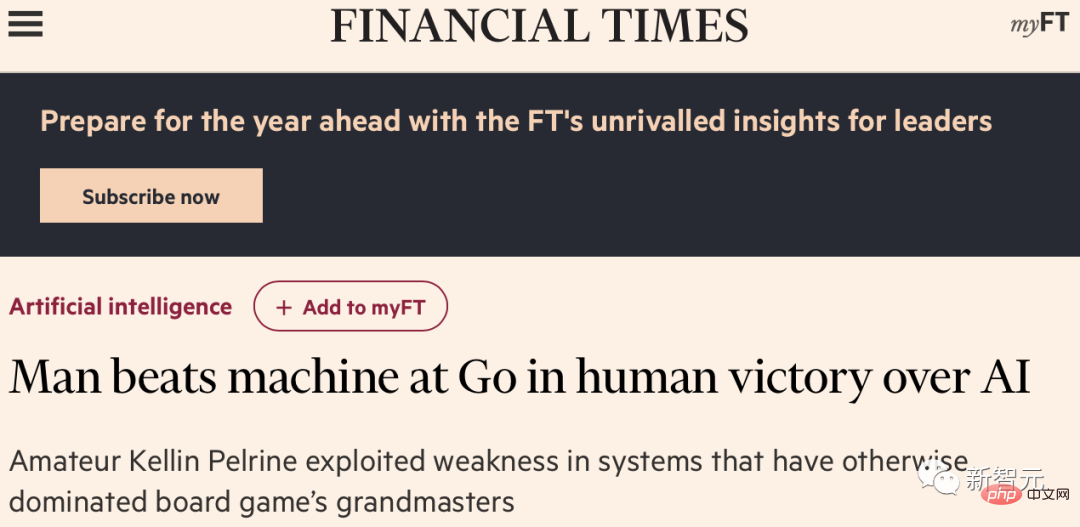
After seven years of dormancy, are human chess players going to make a comeback?
Go makes a comeback against the odds, humans defeat AI?
FT reported that Kellin Pelrine, an amateur four-dan chess player from the United States, defeated the top chess-playing AI-KataGo in one fell swoop.
Out of 15 offline matches, Perline won 14 of them without the help of a computer.
The plan to allow human players to regain the Go crown came from researchers at the California research company FAR AI. The team analyzed the weaknesses of the AI chess players and targeted them to achieve the final victory.
FAR AI CEO Adam Gleave said: "It is very easy for us to exploit this system."
Gleave said, After playing more than 1 million games with KataGo, the AI developed by the team discovered a "bug" that human players could exploit.
Pelrine said the winning strategy they discovered is "not that difficult for humans" and that intermediate players can use it to defeat machines. He also used this method to defeat Leela Zero, another top Go system.

Kellin Pelrine
FT wrote , albeit with the help of computers, this decisive victory opened the door for human chess players.
Seven years ago, artificial intelligence was miles ahead of humans in the most complex of games.
The AlphaGo system designed by DeepMind defeated Go world champion Lee Sedol 4-1 in 2016. Lee Sedol also announced his retirement three years after the disastrous defeat, calling AlphaGo "unbeatable."
As for the strength of artificial intelligence, Pelrine does not take it seriously. In his opinion, the large number of combinations and variations in a chess game means that it is impossible for a computer to evaluate all possible future moves of a chess player.
To put it simply, the strategy used by Pelrine is to "attack the east and attack the west".
On the one hand, Pelrine places stones in every corner of the chessboard to confuse the AI; on the other hand, Pelrine identifies an area of the AI player's area and gradually surrounds it.
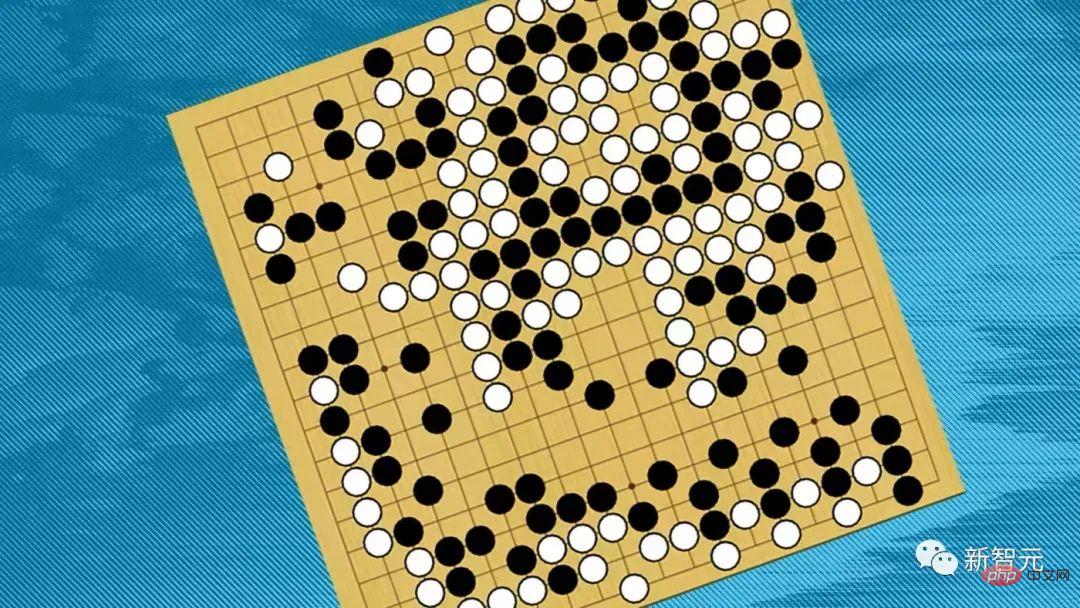
Pelrine said that even though the siege was about to be completed, the AI chess players did not notice the danger in this area. He continued: "But as humans, these vulnerabilities are easy to find."
Stuart Russell, a computer science professor at the University of California, Berkeley, said that some of the most advanced Go game machines have been Weaknesses were found, suggesting that the deep learning systems that underpin today's most advanced AI are fundamentally flawed.
He said these systems can only "understand" the specific situations they have experienced, and cannot make simple generalizations about strategies like humans.
The only one that can defeat AI is AI!
But strictly speaking, the researchers defeated AI through AI, or in other words, used AI to help humans defeat AI in Go.
The paper used as a reference source was first published in November 2022 and updated in January this year. The authors are from MIT, UC Berkeley and other institutions.
In the article, researchers trained an AI with a resistant strategy and defeated KataGo, the most advanced Go artificial intelligence system.
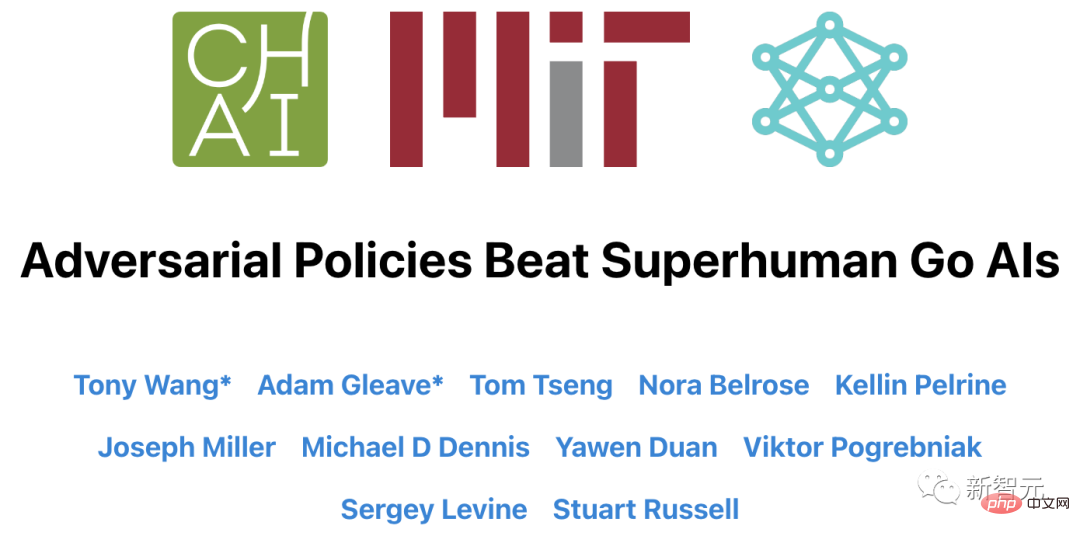
## Project address: https://goattack.far.ai/adversarial-policy-katago#contents
Paper address: https://arxiv.org/abs/2211.00241
The results show, When KataGo does not use search trees, the attacker achieves a 100% winning rate in 1,000 games, and when KataGo uses enough searches, the winning rate exceeds 97%.
In this regard, the researchers emphasized that the adversarial strategy AI can defeat KataGo, but it will be defeated by human amateurs. At the same time, human amateurs cannot beat KataGo. of.
In other words, this AI can win not because it plays Go better, but because it can induce KataGo to make serious mistakes.
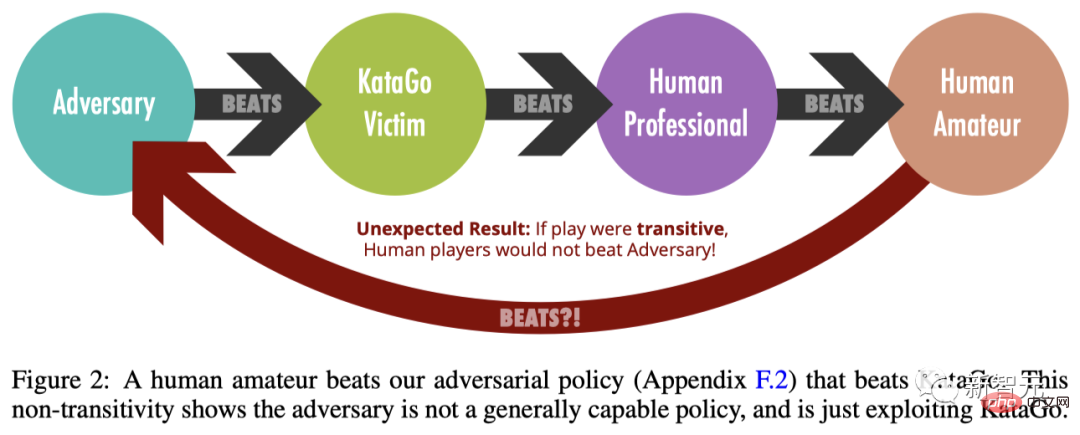
Attack Strategy
Before this, such as KataGo and AlphaZero These chess-playing AIs are all trained through self-play.
But in this study, which the author calls "victim-play", the attacker (adversary) needs to interact with a fixed victim (victim) Play games to train your own winning strategies (not imitate your opponent's moves).
In response, researchers introduced two different adversarial MCTS (A-MCTS) strategies to solve this problem.
- Sample A-MCTS-S: The search process set by the researcher is: when the victim plays chess, sample from the victim's strategy network; when it is the turn to attack , sample from the attacker's policy network.
- Recursive A-MCTS-R: Since A-MCTS-S underestimates the strength of the victim, the researchers proposed a new strategy A-MCTS-R. However, this change increases the computational complexity of training and inference for the attacker.
Specifically, in A-MCTS-R, researchers simulate using a new (recursive) MCTS search on the victim node, replacing Victim sampling steps in A-MCTS-S.
While this is no longer a perfect victim model, it tends to be more accurate than A-MCTS-S, which incorrectly assumes that the victim does not search.
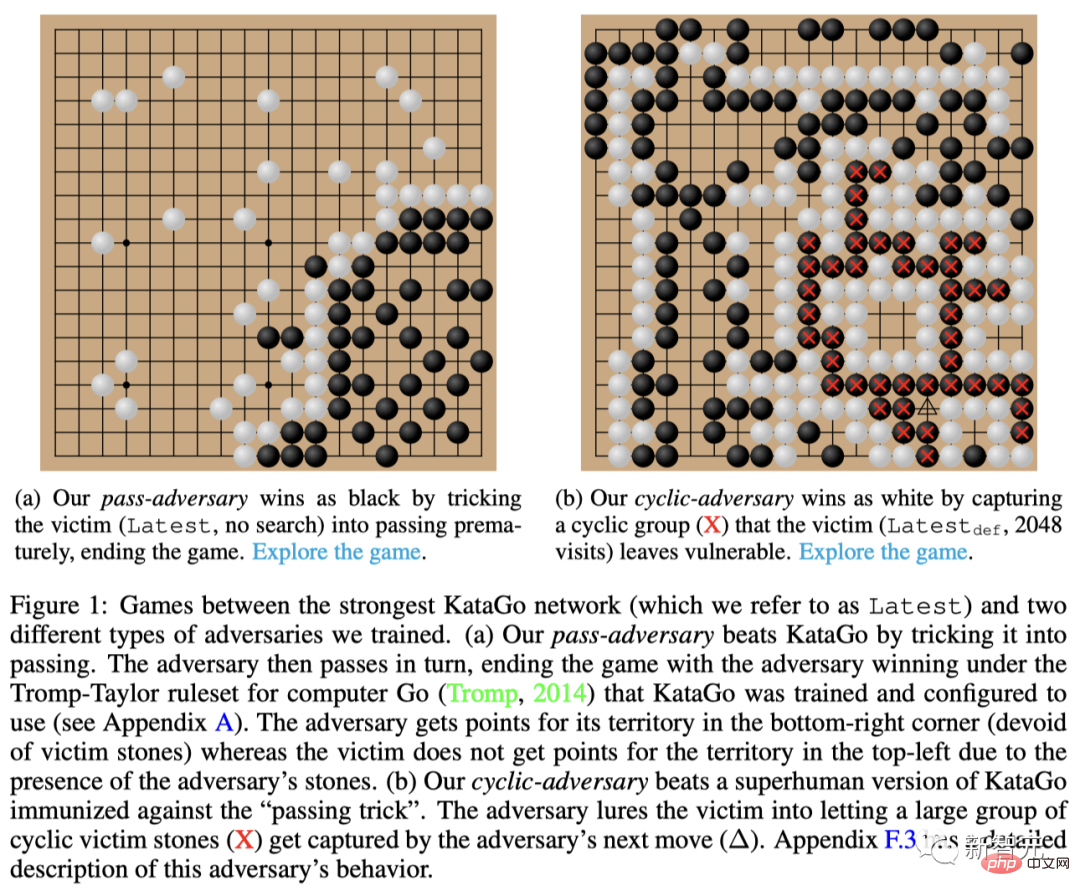
The evaluation results are as follows, please refer to the original text for specific details.
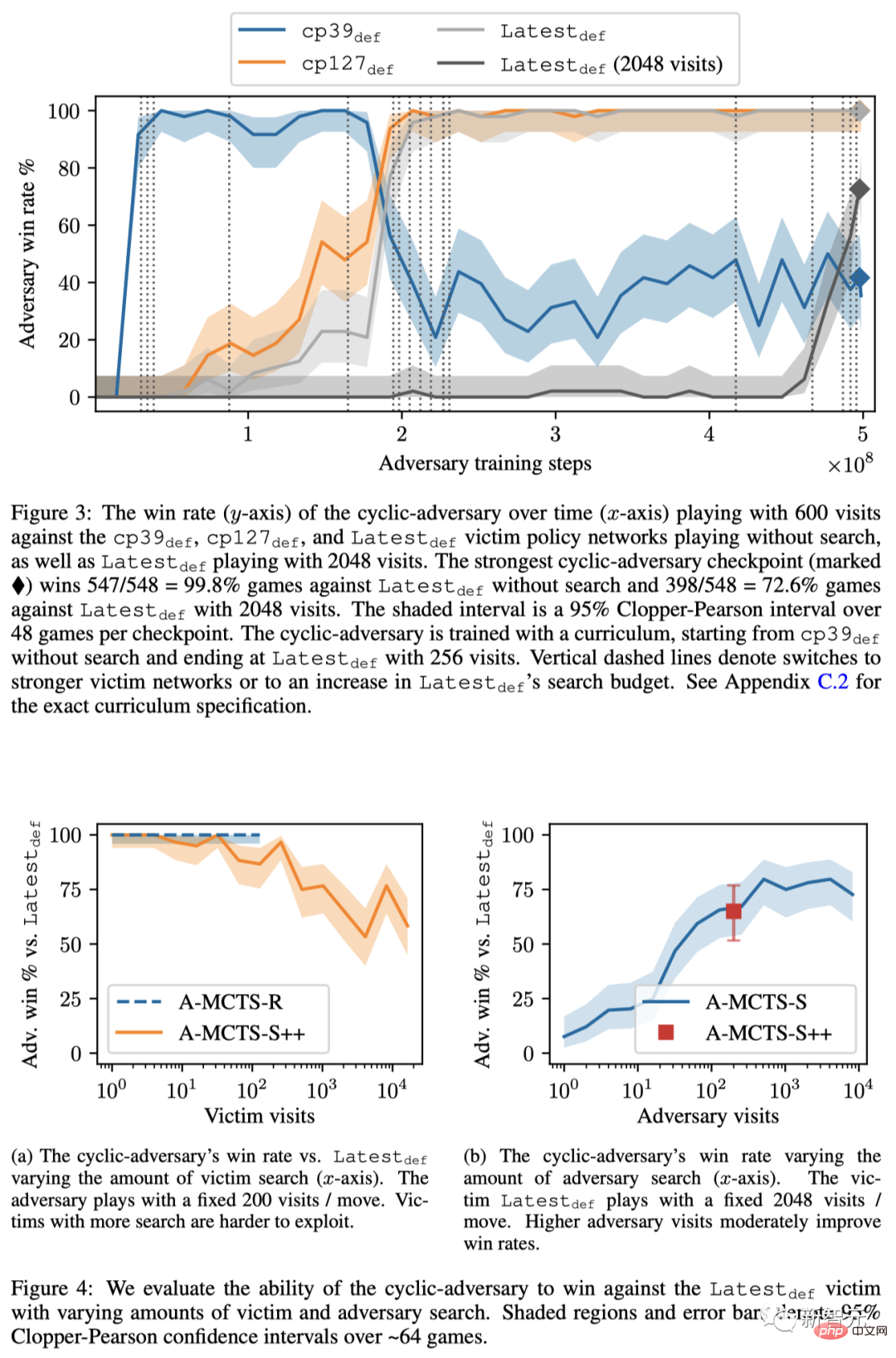
The above is the detailed content of Can humans beat the top Go AI again? With one move against the wind, this amateur 4-dan chess player won completely. For more information, please follow other related articles on the PHP Chinese website!

Hot AI Tools

Undresser.AI Undress
AI-powered app for creating realistic nude photos

AI Clothes Remover
Online AI tool for removing clothes from photos.

Undress AI Tool
Undress images for free

Clothoff.io
AI clothes remover

AI Hentai Generator
Generate AI Hentai for free.

Hot Article

Hot Tools

Notepad++7.3.1
Easy-to-use and free code editor

SublimeText3 Chinese version
Chinese version, very easy to use

Zend Studio 13.0.1
Powerful PHP integrated development environment

Dreamweaver CS6
Visual web development tools

SublimeText3 Mac version
God-level code editing software (SublimeText3)

Hot Topics
 1379
1379
 52
52
 Bytedance Cutting launches SVIP super membership: 499 yuan for continuous annual subscription, providing a variety of AI functions
Jun 28, 2024 am 03:51 AM
Bytedance Cutting launches SVIP super membership: 499 yuan for continuous annual subscription, providing a variety of AI functions
Jun 28, 2024 am 03:51 AM
This site reported on June 27 that Jianying is a video editing software developed by FaceMeng Technology, a subsidiary of ByteDance. It relies on the Douyin platform and basically produces short video content for users of the platform. It is compatible with iOS, Android, and Windows. , MacOS and other operating systems. Jianying officially announced the upgrade of its membership system and launched a new SVIP, which includes a variety of AI black technologies, such as intelligent translation, intelligent highlighting, intelligent packaging, digital human synthesis, etc. In terms of price, the monthly fee for clipping SVIP is 79 yuan, the annual fee is 599 yuan (note on this site: equivalent to 49.9 yuan per month), the continuous monthly subscription is 59 yuan per month, and the continuous annual subscription is 499 yuan per year (equivalent to 41.6 yuan per month) . In addition, the cut official also stated that in order to improve the user experience, those who have subscribed to the original VIP
 Context-augmented AI coding assistant using Rag and Sem-Rag
Jun 10, 2024 am 11:08 AM
Context-augmented AI coding assistant using Rag and Sem-Rag
Jun 10, 2024 am 11:08 AM
Improve developer productivity, efficiency, and accuracy by incorporating retrieval-enhanced generation and semantic memory into AI coding assistants. Translated from EnhancingAICodingAssistantswithContextUsingRAGandSEM-RAG, author JanakiramMSV. While basic AI programming assistants are naturally helpful, they often fail to provide the most relevant and correct code suggestions because they rely on a general understanding of the software language and the most common patterns of writing software. The code generated by these coding assistants is suitable for solving the problems they are responsible for solving, but often does not conform to the coding standards, conventions and styles of the individual teams. This often results in suggestions that need to be modified or refined in order for the code to be accepted into the application
 Can fine-tuning really allow LLM to learn new things: introducing new knowledge may make the model produce more hallucinations
Jun 11, 2024 pm 03:57 PM
Can fine-tuning really allow LLM to learn new things: introducing new knowledge may make the model produce more hallucinations
Jun 11, 2024 pm 03:57 PM
Large Language Models (LLMs) are trained on huge text databases, where they acquire large amounts of real-world knowledge. This knowledge is embedded into their parameters and can then be used when needed. The knowledge of these models is "reified" at the end of training. At the end of pre-training, the model actually stops learning. Align or fine-tune the model to learn how to leverage this knowledge and respond more naturally to user questions. But sometimes model knowledge is not enough, and although the model can access external content through RAG, it is considered beneficial to adapt the model to new domains through fine-tuning. This fine-tuning is performed using input from human annotators or other LLM creations, where the model encounters additional real-world knowledge and integrates it
 Seven Cool GenAI & LLM Technical Interview Questions
Jun 07, 2024 am 10:06 AM
Seven Cool GenAI & LLM Technical Interview Questions
Jun 07, 2024 am 10:06 AM
To learn more about AIGC, please visit: 51CTOAI.x Community https://www.51cto.com/aigc/Translator|Jingyan Reviewer|Chonglou is different from the traditional question bank that can be seen everywhere on the Internet. These questions It requires thinking outside the box. Large Language Models (LLMs) are increasingly important in the fields of data science, generative artificial intelligence (GenAI), and artificial intelligence. These complex algorithms enhance human skills and drive efficiency and innovation in many industries, becoming the key for companies to remain competitive. LLM has a wide range of applications. It can be used in fields such as natural language processing, text generation, speech recognition and recommendation systems. By learning from large amounts of data, LLM is able to generate text
 Five schools of machine learning you don't know about
Jun 05, 2024 pm 08:51 PM
Five schools of machine learning you don't know about
Jun 05, 2024 pm 08:51 PM
Machine learning is an important branch of artificial intelligence that gives computers the ability to learn from data and improve their capabilities without being explicitly programmed. Machine learning has a wide range of applications in various fields, from image recognition and natural language processing to recommendation systems and fraud detection, and it is changing the way we live. There are many different methods and theories in the field of machine learning, among which the five most influential methods are called the "Five Schools of Machine Learning". The five major schools are the symbolic school, the connectionist school, the evolutionary school, the Bayesian school and the analogy school. 1. Symbolism, also known as symbolism, emphasizes the use of symbols for logical reasoning and expression of knowledge. This school of thought believes that learning is a process of reverse deduction, through existing
 To provide a new scientific and complex question answering benchmark and evaluation system for large models, UNSW, Argonne, University of Chicago and other institutions jointly launched the SciQAG framework
Jul 25, 2024 am 06:42 AM
To provide a new scientific and complex question answering benchmark and evaluation system for large models, UNSW, Argonne, University of Chicago and other institutions jointly launched the SciQAG framework
Jul 25, 2024 am 06:42 AM
Editor |ScienceAI Question Answering (QA) data set plays a vital role in promoting natural language processing (NLP) research. High-quality QA data sets can not only be used to fine-tune models, but also effectively evaluate the capabilities of large language models (LLM), especially the ability to understand and reason about scientific knowledge. Although there are currently many scientific QA data sets covering medicine, chemistry, biology and other fields, these data sets still have some shortcomings. First, the data form is relatively simple, most of which are multiple-choice questions. They are easy to evaluate, but limit the model's answer selection range and cannot fully test the model's ability to answer scientific questions. In contrast, open-ended Q&A
 SOTA performance, Xiamen multi-modal protein-ligand affinity prediction AI method, combines molecular surface information for the first time
Jul 17, 2024 pm 06:37 PM
SOTA performance, Xiamen multi-modal protein-ligand affinity prediction AI method, combines molecular surface information for the first time
Jul 17, 2024 pm 06:37 PM
Editor | KX In the field of drug research and development, accurately and effectively predicting the binding affinity of proteins and ligands is crucial for drug screening and optimization. However, current studies do not take into account the important role of molecular surface information in protein-ligand interactions. Based on this, researchers from Xiamen University proposed a novel multi-modal feature extraction (MFE) framework, which for the first time combines information on protein surface, 3D structure and sequence, and uses a cross-attention mechanism to compare different modalities. feature alignment. Experimental results demonstrate that this method achieves state-of-the-art performance in predicting protein-ligand binding affinities. Furthermore, ablation studies demonstrate the effectiveness and necessity of protein surface information and multimodal feature alignment within this framework. Related research begins with "S
 SK Hynix will display new AI-related products on August 6: 12-layer HBM3E, 321-high NAND, etc.
Aug 01, 2024 pm 09:40 PM
SK Hynix will display new AI-related products on August 6: 12-layer HBM3E, 321-high NAND, etc.
Aug 01, 2024 pm 09:40 PM
According to news from this site on August 1, SK Hynix released a blog post today (August 1), announcing that it will attend the Global Semiconductor Memory Summit FMS2024 to be held in Santa Clara, California, USA from August 6 to 8, showcasing many new technologies. generation product. Introduction to the Future Memory and Storage Summit (FutureMemoryandStorage), formerly the Flash Memory Summit (FlashMemorySummit) mainly for NAND suppliers, in the context of increasing attention to artificial intelligence technology, this year was renamed the Future Memory and Storage Summit (FutureMemoryandStorage) to invite DRAM and storage vendors and many more players. New product SK hynix launched last year



